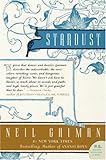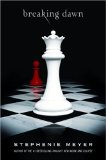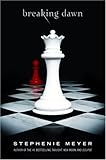 I finished reading Neil Gaiman’s Stardust just in time for the end of the year. After finishing this book, I can say I read 23 books this year, which is nearly 2 a month — not too shabby.
I finished reading Neil Gaiman’s Stardust just in time for the end of the year. After finishing this book, I can say I read 23 books this year, which is nearly 2 a month — not too shabby.
Stardust is the story of Tristran Thorn, the child of a Dunstan Thorn of Wall, a Victorian village in England that just happens to border the realm of Faerie, where Tristran journeys to retrieve a falling star to win the love of Victoria Forrester. Along the way, he meets many other interesting characters, some of whom are in search of the star for less noble purposes. The star, who is called Yvaine, has a stone which can determine who will be the next Lord of Stormhold and a heart that will provide the Lilim, three witch sisters, with enough years to help them survive into the next age.
I enjoyed this book, but it has some fairly significant differences from the movie, which I also liked. For one thing, the ending was much more dramatic in the movie, although I liked the last conversation between Yvaine and the Witch Queen in the book; I don’t believe this conversation takes place in the movie. I really do like Gaiman’s writing style, which is humorous and whimsical and reminds me very much of J.K. Rowling’s style, which I hope he would consider to be a compliment.
I posted a list of the books I have read and linked them to my reviews in a previous post. Of those books, the ones I enjoyed most were the following:
- The Commoner by John Burnam Schwartz
- The Plague of Doves by Louise Erdrich
- The Guernsey Literary and Potato Peel Pie Society by Mary Ann Shaffer and Annie Barrows
- The Graveyard Book by Neil Gaiman
- Stardust by Neil Gaiman
My first book of the new year will be The Eyre Affair by Jasper Fforde.


